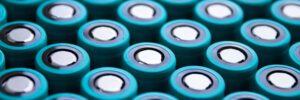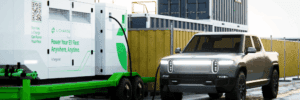
A favorite trope of the anti-EV crowd is that EVs will “crash the grid.” None of the utility execs we’ve spoken to share that fear, but it is true that unmanaged charging can exacerbate the problem of peak power demand. The answer is managed charging, which schedules charging for off-peak times.
EnergyHub, a provider of grid-edge flexibility solutions, and The Brattle Group have released the results of a study that used real-world EV data from an EnergyHub program in Washington State to quantify the grid reliability and cost savings benefits of active managed charging.
The Brattle Group’s analysis of EnergyHub’s active managed charging solution shows that optimization of EV charging can help utilities meet this challenge effectively by reducing local grid stress and minimizing wholesale market costs, while continuing to ensure customer charging needs are met.
The report, “Demonstrating the Full Value of Managed EV Charging,” compares two active management strategies tested in real-world trials to both unmanaged charging and chaging that takes advantage of passive time of use (TOU) rates.
The researchers found that active managed charging:
- Reduces EV charging peaks by up to 50%. Active management smooths EV load at the service transformer and feeder levels, reducing distribution grid congestion.
- Significantly increases distribution system hosting capacity. Managed charging can allow the distribution network to support approximately double the number of EVs before requiring upgrades.
- Saves up to $400 per EV annually.
- Delivers 95% of charging during off-peak periods. Active managed charging can handle complex time-of-use rate schedules for customers, reducing charging bills.
- Ensures customer charging needs are met. In the study, 100% of EVs that remained plugged in with sufficient time to charge reached their desired target state of charge, while individual customers overrode charging commands in an average of 2.3 sessions per month under active management strategies.
“As utilities prepare for accelerating EV adoption, understanding the real-world performance of active managed charging is critical for planners to be able to utilize these solutions in distribution system planning,” said Akhilesh Ramakrishnan, Managing Energy Associate at The Brattle Group and co-author of the study. “This report provides a rigorous, data-driven evaluation of how active managed charging can improve hosting capacity and reduce grid infrastructure costs. By using actual vehicle data to model distribution system impacts, this study moves the industry beyond assumptions to actionable insights that support proactive planning and investment decisions.”
“This report confirms that active managed EV charging isn’t just a theoretical solution—it delivers measurable grid value today,” said Freddie Hall, Data Scientist at EnergyHub. “By actively shaping load at the distribution level, utilities can defer costly upgrades, improve reliability, and design programs that work for both the grid and drivers.”
Source: The Brattle Group
from Charged EVs https://ift.tt/QyB2awF






